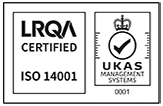
Circular economy. It’s a term we hear more of. But what is it? And why does it matter?
What is a circular economy?
In the age of climate change and increased scrutiny of the health of our planet, the notion of a circular economy has emerged. It creates a closed-loop of ‘Make, Use, Reuse/Repair/Recycle’ replacing the traditional linear economy approach of ‘Make, Use, Dispose’, or ‘Take, Make, Waste’ model.
Why is a circular economy important?
A circular economy addresses the global waste crisis by:
- Reducing items going to landfill because items are reused or recycled instead
- Driving higher resource productivity by maximising the potential of resources
- Preparing the world for emerging resource scarcity through less reliance on raw materials
Who’s responsible for creating a circular economy?
The idea of a circular economy applies to individuals, governments and businesses.
On an individual basis, there’s an onus to reduce, reuse and recycle to divert resources away from landfill. Large companies, such as Unilever, are putting their weight behind circular economy initiatives with pledges to ensure 100% of packaging is reusable, recyclable or compostable, and halve the amount of virgin plastic in their packaging by 2025.
Smaller companies are coming up with innovative recycling initiatives of their own, including tackling flip flop waste and finding ways to recycle nappies and sanitary items.
Changing habits
Ultimately, a circular economy relies on altering consumer habits. For example, to tackle the waste caused by fashion, we could see a rise in renting clothes rather than buying them.
Companies like Bundalee rents baby clothes so clothes are re-used, rather than disposed of. Refillable containers may become the norm – Loop in the US pick up empty containers from customer homes, then refill and return them to substantially reduce single-use packaging.
Planning for inevitable waste
A circular economy is vital for the planet. While businesses and countries scramble to get a hold on the crisis, waste should be handled responsibly in the meantime – recycling as much as possible and responsibly disposing of non-recyclable materials.
While achieving 0% waste is unrealistic as yet, Energy from Waste systems like ours at Rabbit provide a way to create green electricity from non-recyclable waste and divert waste away from landfill too.
Contact us today to find out more about Rabbit Group’s recycling facilities. Reach us on 01903 762020 or email info@rabbitgroup.co.uk.




